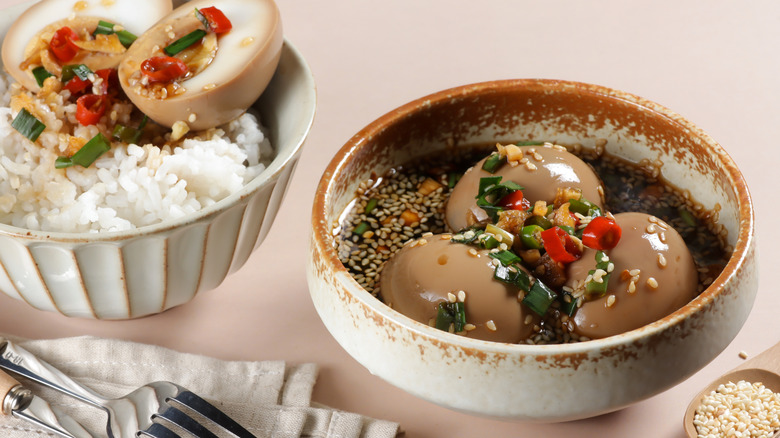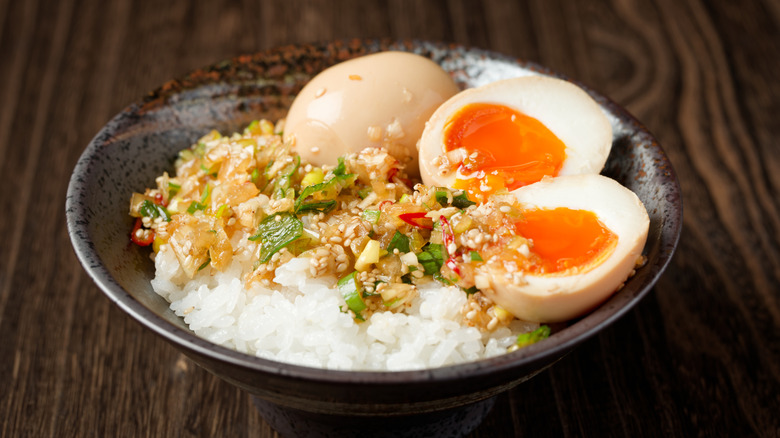Mayak Eggs: The Traditional Korean Dish With A Controversial Name
We may receive a commission on purchases made from links.
Mayak eggs, or Korean drug eggs (we'll get to that name in a bit) are soft-to-medium boiled eggs marinated in an umami-rich soy broth. Soy eggs have a long history and permanent place in Asian cuisine, where their origin is suspected to be China. The Japanese version of soy eggs is more often than not a noodle-bowl staple, having adopted the name ramen eggs. The Taiwanese have their own brand of soy eggs, as do the Vietnamese. So while Korea hasn't cornered the market on soy-marinated eggs, it has seemingly upped the game with mayak eggs.
Soy eggs have long been a traditional component of the Korean table as banchan (small side dishes), and are technically called gyeran jangjorim. In recent years, and with the addition of other aromatics and spices, mayak eggs have garnered a more prominent spot in the Korean culinary scene, with multiple recipes and prep ideas trending all over social media.
But let's circle back to that controversial name: When looking up mayak eggs, you may encounter captions alluding to drug eggs, or drunk eggs. The name is controversial because mayak means illicit drugs in the Korean language. However, the younger generation has usurped the word to mean unbelievably delicious and addictive, just as Americans have utilized the word crack as slang for the same thing. Jargon aside, mayak eggs are easy to prepare, and the real question may be why we aren't marinating eggs more often.
Mayak eggs may be addictive, so use caution
With mayak eggs enjoying their social media heyday, it's easy to find a great recipe. You can make these delicious soy eggs at home by first preparing soft-boiled eggs. The desired result for these eggs is a jammy yolk, so they may lose the desired texture if overboiled. Do read our hacks that will make boiling eggs easier, with tips from adding oil to the water to how to peel them. If you dislike the boiling water method, it may be time to invest in a rapid egg cooker.
Typical ingredients for the soy marinade include soy sauce, water, onion, garlic, scallions, chile peppers, sesame seeds, sugar, and vinegar. Simply combine these flavors to your taste. Substitutions can include pear or honey for sugar, or the addition of more fiery chiles for a hotter mix. The recipe itself is quick, but allow yourself overnight to marinate the eggs in the refrigerator.
There's probably no harm in calling these mouthwatering soy eggs mayak if you're in the U.S., but because of the possible negative connotations in a country that's newly focused on drug awareness, many South Koreans have had to be more selective when it comes to labels. According to "The Korea Herald", the country's Ministry of Food and Drug Safety advised businesses to drop the word mayak from products and menus. While this has been met with some controversy, bloggers and influencers are still showcasing mayak egg recipes, and we're still paying attention.

